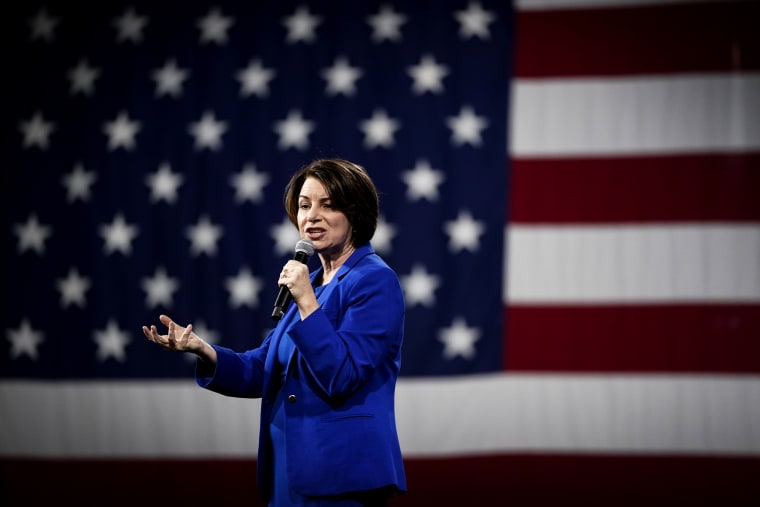The basic contours of the Democratic presidential race have been apparent for several months: voters have seen one group of progressive candidates pushing bold, unapologetic, and ambitious platforms, promising fundamental societal changes, facing off against a rival group of candidates who've focused on electability, breadth of appeal, and incremental societal changes.
At the risk of promoting an overly reductive thesis, in effect, it's the party's revolutionaries against its evolutionaries. The former sees the latter as neoliberal sellouts with bland visions; the latter sees the former as unelectable radicals who'll hand Donald Trump a second term on a platter. (Some, including Elizabeth Warren, have tried to position themselves as a bridge between the two.)
The group of evolutionaries -- led in large part by candidates like Joe Biden, Pete Buttigieg, Amy Klobuchar, and Mike Bloomberg -- faced something similar to what my old poli-sci professors used to call a "collective action problem."
It's unfolded in ways observers will find familiar: these candidates watched Bernie Sanders jump out in front of the primary and position himself as the clear frontrunner for the Democratic nomination. These same candidates, rightly or wrongly, have long believed that (a) Sanders would be a poor general-election candidate; and (b) so long as the party's more moderate wing was divided several ways, none of them could stop the Vermont independent from prevailing.
And that was the collective action problem: these anti-Sanders candidates knew what they wanted to see happen -- moderate candidates had to quit in order to stop splitting the relevant voting blocs -- but they didn't want to be the one to pull the plug on their candidacies.
It led to weeks of behind-the-scenes chatter in which the candidates' operatives said to their similarly situated rivals, "Oh yeah? Well, if you're so worried, why don't you drop out? Why does my candidate have to be the one to get out of the way?"
In a collective action problem, members of a group collectively recognize what needs to be done, but for self-interested reasons, they each balk at being the one to do it.
Over the last 24 hours, this Democratic contingent appears to have taken steps to resolve the problem. It began when Pete Buttigieg bowed out last night, and the resolution continues to unfold today.
Amy Klobuchar is dropping out of the presidential race, a campaign official confirmed on Monday.... She will endorse former Vice President Joe Biden at a rally in Dallas later on Monday.
Sanders told reporters earlier today that "the political establishment is coming together" to try and stop him because they are "getting nervous."
That's exactly right. Democratic leaders who believe Sanders would likely lose -- or worse, hurt the party's prospects up and down the ballot -- aren't just "getting" nervous; they're already nervous. When the Vermont senator said these Democrats are "coming together" to try and stop him, he's reading the landscape accurately.
Or put another way, the more centrist wing of the party has gotten over its collective action problem by coming to terms with the fact that they -- from their perspective -- are more concerned with defeating Trump than their own ambitions.
What's less clear is whether they're right and whether their efforts will have the desired effect. Will the bulk of Buttigieg's and Klobuchar's supporters gravitate to Biden? Maybe, but the importance of electoral "lanes" is often overstated, and some of these voters may end up supporting Sanders -- or for that matter, Bloomberg or Warren.
Is it too late? Perhaps not -- there have only been four nominating contests -- but Sanders is likely to have a very good day tomorrow, picking up a whole lot of Super Tuesday delegates.
That said, in March 2019, the top two candidates for the Democratic nomination were Joe Biden and Bernie Sanders. In March 2020, we appear to have arrived at a similar point.
